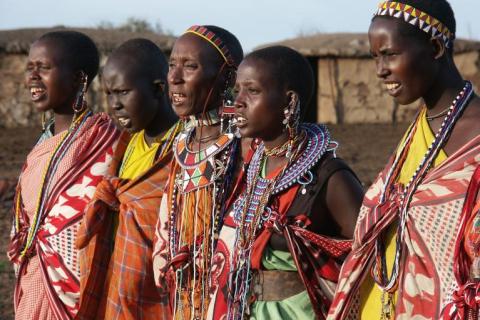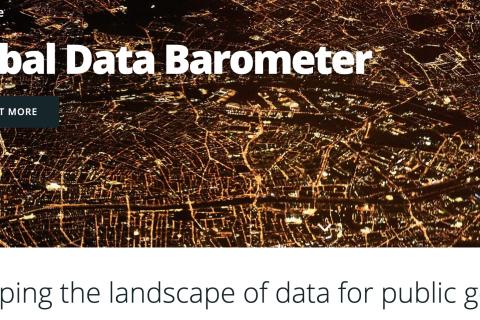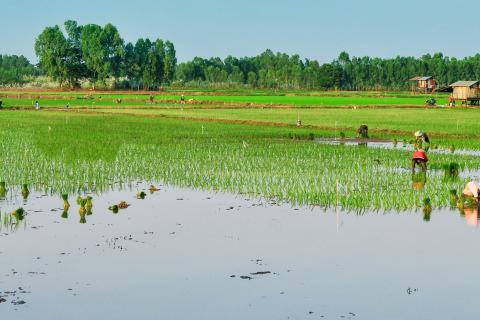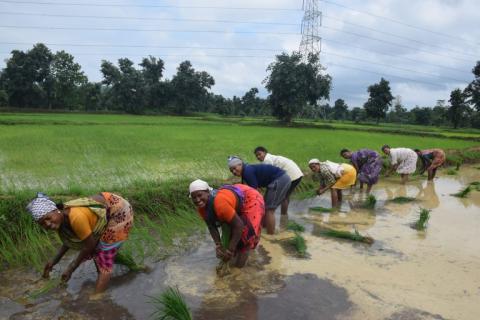How granular local studies enrich the Global Data Barometer
We have an ambitious objective here at the Global Data Barometer: To map the landscape of data for public good. To do so, we’ll be gathering information about data governance, capability, availability, and use and impact in 100+ countries. Because data for public good can play different roles and surface differently across sectors—for example, land data, transportation data, and corporate ownership data all have different histories, frameworks, and uses—we’ll also be delving into thematic areas.
Here is where local and granular studies gain relevance for GDB.
Secure Land Rights: A Sustainable Solution At the Intersection of Climate Change and COVID-19
COVID-19 and climate change are impacting all of us, but the dual disasters have a disproportionate impact on communities in emerging economies. These impacts are felt most acutely in rural areas, especially among indigenous communities and minority groups, and by women and others who are marginalized within those groups.
Nicaragua: The Autonomous Regions facing Covid 19
I am Dolene Miller, an Afro-descendant from the Caribbean (Atlantic) Coast of Nicaragua and for me it is important and very necessary to support any initiative to protect my community from COVID19. As ethnic minorities, we are facing a health crisis in precarious conditions because the national government itself has not wanted to assume its responsibility to protect the population from infection, has not issued a quarantine and, on the contrary, is promoting massive activities according to its thesis of contagion of the herd.
How Covid-19 is bringing Mongolia’s herding families back together
In central Mongolia, the summer is warm and soft rain falls on the steppes. For herders like Baasandorj, it is a busy time of year, filled with combing sheep’s wool, milking cows and making dairy products for the winter.
With a historic legal decision, India marks progress toward equal inheritance rights for daughters
In a landmark decision, the Supreme Court of India last week ruled that daughters shall enjoy equal rights to inherit family land – an overdue and welcome shift toward greater equality for India’s women.
International Day of Indigenous People: Land rights and Biodiversity Conservation
Last week the world observed the International Day of Indigenous Peoples on Sunday, Aug. 9, amid a global pandemic that UN Secretary-General António Guterres noted has had a “devastating impact” on the world’s Indigenous communities.
Why investing in women’s land rights helps overall gender equality
Supporting women’s ability to own, manage and control land will help accelerate gender equality globally
It is depressing, discouraging, infuriating – pick your word – to see the scale and scope of abuse and discrimination aimed at women and girls worldwide.
Latin America’s Indigenous and Afro-descendant women face a 'triple pandemic'
Many Latin American countries recognize the property rights of indigenous and Afro-descendant people, but those laws do little to protect women’s access to land
Latin America’s indigenous and Afro-descendant communities are facing not just one pandemic, but three. Women bear the brunt of them all, which threatens communities’ very survival.
Housing and Land Rights in Kenya
Globally, the UN estimates that 1.6 billion people struggle to find adequate housing. Kenya’s Constitution Article 43(1) (b), provides that ‘every person has the right to accessible and adequate housing and reasonable standards of sanitation’. Kenyans suffer insecurity of tenure and are victims of frequent forceful evictions. This is a country that never follows up on building standards, leave alone rent controls. The current leadership is money-minded and has no interest in public housing.












